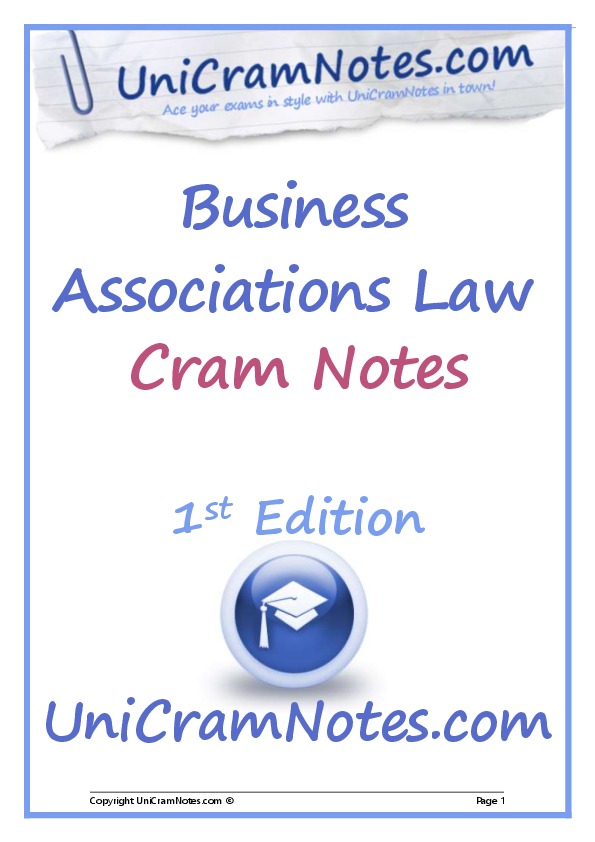B. DUTY TO ACT IN GOOD FAITH IN BEST INTERESTS OF THE COMPANY Directors have a duty to act honestly having regard to the best interests of the company (s 181(1)(a). The objective test is whether a reasonable person, in the director or officer’s position, acting in good faith would believe the act to be in the best interests of the company (ASIC v Adler). The company’s interests include those of: a. Shareholders i. Shareholders as a whole (Parke v Daily News Ltd) ii. Directors must act fairly as between the different classes or groups of shareholders (Mills v Mills), including: 1. variation of class rights 2. selective capital reduction 3. selective buy-back 4. issue of shares b. Employees and the community i. This was ruled out in Parke v Daily News. ii. However, in the Canadian case of Teck v Millar, a ‘decent respect for interests’ beyond shareholders won’t lead to a breach of duty. c. Creditors i. Interests of the creditors can only be considered where the company is insolvent – (Walker v Wimborne, Kinsela) ii. Consider creditors where company is insolvent or where a transaction may cause insolvency (Nicholson v Permakraft)
The most concise and updated Business Associations, Corporations Law and Business Organisations Study Notes for Australian Law Students.
Includes Model Exams and Model Exam Answers.
(Click here to purchase just the Notes)
Approximately 24829 words over 51 pages. Prepared in 2025.










